Bank Decision

Should I use a bank or a currency exchange service ?
When it comes to exchanging currencies, you have two main options: banks and currency exchange services. Both have their advantages and disadvantages, so it's important to consider your specific needs before making a decision. Advantages of Using a Bank: - Security: Banks are generally considered more secure than currency exchange services because they are regulated by government agencies. Your money is protected by insurance policies, such as the Federal Deposit Insurance Corporation (FDIC) in the United States. - Convenience: Many banks offer online and mobile banking services, allowing you to easily manage your account and make transactions from anywhere. You can also withdraw cash from ATMs worldwide without additional fees. - Fees: Banks typically charge lower fees for currency exchange compared to currency exchange services. Some banks even offer fee-free currency exchange if you have an account with them. Advantages of Using a Currency Exchange Service: - Better Exchange Rates: Currency exchange services often offer better exchange rates than banks because they specialize in foreign currency exchange. This means you can get more money for your currency than if you were to use a bank. - No Fees: Many currency exchange services do not charge any fees for exchanging currencies. However, some may still charge a small commission or service fee. - Speed: Currency exchange services are usually faster than banks when it comes to exchanging currencies. They often have shorter processing times and can provide you with the currency you need quickly. Disadvantages of Using a Bank: - Limited Availability: Not all banks offer foreign currency exchange services, especially smaller local banks. You may need to visit multiple banks to find one that offers this service. - Higher Fees: As mentioned earlier, banks typically charge higher fees for currency exchange compared to currency exchange services. This can add up quickly if you need to exchange large amounts of currency. Disadvantages of Using a Currency Exchange Service: - Security Risks: Currency exchange services are not regulated by government agencies like banks are. This means there is a higher risk of fraud or theft when using these services. - Limited Locations: Currency exchange services may not be available in all locations, especially in rural areas or smaller towns. You may need to travel to a larger city or airport to find one. - Limited Services: Currency exchange services typically only offer foreign currency exchange and do not provide other banking services like checking accounts or loans. If you need additional financial services, you will need to use a separate bank.

How does credit management work in a bank ?
Credit management is a crucial function of banks that involves assessing and managing the risks associated with lending money to individuals and businesses. The process includes evaluating borrowers' creditworthiness, using credit scoring models to determine risk, making loan decisions, servicing and monitoring loans, and managing credit risk through diversification and risk management strategies.

How does the threat of climate change influence our cognitive processes and decision-making ?
The influence of climate change threat on cognitive processes and decision-making is significant. It can affect perception of risk, trigger emotional responses, and alter information processing. Additionally, it shifts priorities in decision-making, necessitates long-term planning, and requires collaboration among various stakeholders.
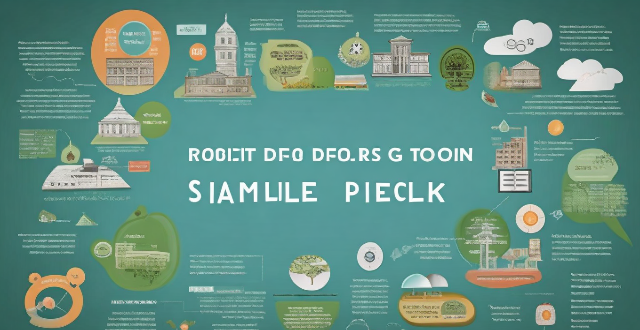
What role do economic indicators play in policy making by central banks ?
Economic indicators play a crucial role in policy making by central banks. They provide valuable information about the state of the economy, which helps central banks make informed decisions about monetary policy. Economic indicators are used to measure economic performance, identify risks and challenges, guide monetary policy decisions, and communicate with markets. Central banks use these indicators to assess whether the economy is growing at a sustainable pace or if there are any imbalances that need to be addressed. They also help central banks identify potential risks and challenges facing the economy, such as a widening trade deficit or rising imports. Economic indicators guide monetary policy decisions by helping central banks determine whether to raise or lower interest rates based on inflation targets. Finally, economic indicators play an important role in communicating with markets by providing transparency and clarity about central bank policy decisions.

Can AI replace human decision-making in complex situations ?
Artificial intelligence (AI) has made significant strides in recent years, leading to discussions about its potential to replace human decision-making in complex situations. While AI possesses certain advantages, such as speed and accuracy, it still faces limitations that prevent it from fully replacing humans in decision-making processes. Advantages of AI in decision-making include speed and efficiency, accuracy and consistency, and scalability. However, AI also has limitations such as lack of creativity, ethical considerations, and interpretability. Examples of complex situations where AI may not replace human decision-making include medical diagnosis, legal judgments, and business strategy. In conclusion, while AI has the potential to assist humans in decision-making processes, it cannot fully replace them in complex situations. The combination of AI's analytical capabilities and human creativity, ethics, and intuition will likely lead to better outcomes in these scenarios.

What role should public opinion play in climate decision-making ?
The text discusses the importance of public opinion in climate decision-making, emphasizing that it can influence policymakers, shape public discourse, and drive action towards addressing climate change. The author outlines ways to influence public opinion, such as education, advocacy, media, and personal action.

Does exercise influence executive functions, such as decision-making and problem-solving ?
Exercise has a positive impact on executive functions, including decision-making and problem-solving. Regular physical activity can enhance cognitive functioning, risk assessment, self-control, creative thinking, working memory, and attention, leading to improved performance in these areas. Incorporating exercise into your lifestyle can benefit both your physical and cognitive health.

How does climate change exacerbate gender inequality in access to resources and decision-making ?
Climate change exacerbates gender inequality by disproportionately affecting women and girls in access to resources and decision-making. Women often have limited access to resources such as water, food, and land due to cultural norms, lack of education, and poverty. They also have limited participation in decision-making processes due to cultural norms and lack of education. To address these issues, it is important to prioritize gender equality in climate change adaptation and mitigation strategies by ensuring that women's voices and experiences are taken into account when making decisions.
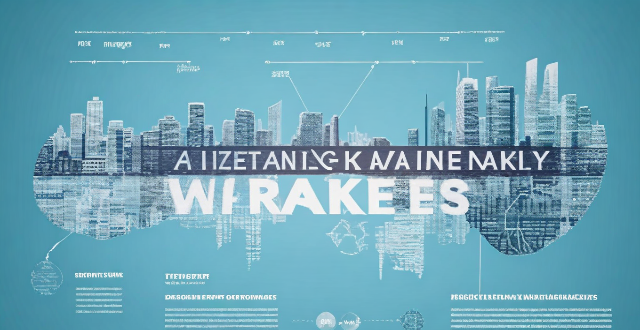
What are some best practices for integrating climate risk into investment decision-making processes ?
As climate change continues to affect financial markets, integrAs climate change continues to affect financial markets, integr decision-making processes is becoming integrating climate risk into investment decision-making processes is becoming increasingly important. Best practices for doing so include assessing climate risk in the investment process, incorporating climate risk into investment analysis, monitoring and reporting on climate risk exposure, and collaborating with other stakeholders. These practices help investors manage climate risk effectively and make informed investment decisions that align with sustainability goals.
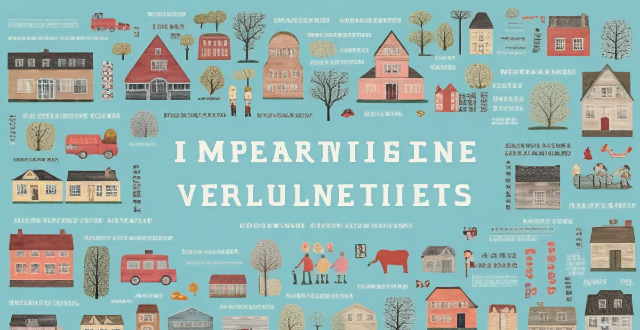
How can we involve vulnerable populations in climate decision-making processes to protect their rights ?
The text discusses the importance of including vulnerable populations, such as the poor, elderly, children, and those with disabilities, in climate decision-making processes. It highlights the reasons for their inclusion, strategies to facilitate their participation, effective communication channels, policy recommendations, and success stories. The text emphasizes the need for accessibility, language support, child-friendly approaches, financial support, community workshops, door-to-door outreach, social media campaigns, and art and storytelling to reach out to these populations. It also suggests legal mandates, funding priorities, and monitoring and evaluation as policies to support inclusivity. Overall, the text argues that involving vulnerable populations in climate decision-making is crucial for equity, diversity of perspectives, and effective solutions.

Can I cancel a Cross-Border Payment transaction ?
Canceling a cross-border payment depends on factors like the payment method, bank policies, and timing of cancellation. Wire transfers and electronic platforms are common methods, with immediate requests having higher chances of success. Costs may apply for cancellation, and effective communication with banks or providers is crucial. Steps include acting quickly, verifying transaction status, contacting support, and understanding any fees. Prevention tips involve double-checking details and using reliable platforms.

How can I create a personalized gift without breaking the bank ?
The text provides guidance on creating personalized gifts without spending a lot of money. It suggests getting crafty by making handmade items, using what one already has to create sentimental gifts, thinking creatively about non-material presents, shopping sales and using coupons for purchased gifts, and collaborating with others for group gifts. The tips aim to help readers give meaningful presents while staying within budget.

How do I troubleshoot issues with Apple Pay ?
Troubleshooting issues with Apple Pay involves checking device compatibility, updating software, adding a new card, verifying bank support, and contacting Apple Support. Compatible devices include iPhone 8 or later, iPad Pro (all models), Apple Watch Series 1 or later, and Mac with Touch ID or T2 Security Chip. Updating software can be done through Settings > General > Software Update on iPhone or iPad, or System Preferences > Software Update on Mac. To add a new card, open the Wallet app, tap the plus sign, follow prompts, and call the bank if needed. Not all banks support Apple Pay, so check with your bank or visit Apple's website for a list of supported banks. If issues persist, contact Apple Support via phone, email, or chat on their website for further assistance.

What banks and credit card providers support Apple Pay ?
Apple Pay is a mobile payment and digital wallet service that works with Apple devices. It allows users to make secure purchases in person, in iOS apps, and on the web using Safari. Many banks and credit card providers support Apple Pay, including Bank of America, Capital One, Chase, Citi, Wells Fargo, American Express, Discover, MasterCard, and Visa. Adding your card to Apple Pay is a straightforward process involving opening the Wallet app, tapping the plus sign, and following the steps to add a new card. The availability of Apple Pay and the specific cards it supports may vary by country or region, so it's important to check with your bank or card issuer to confirm compatibility and get any necessary instructions.
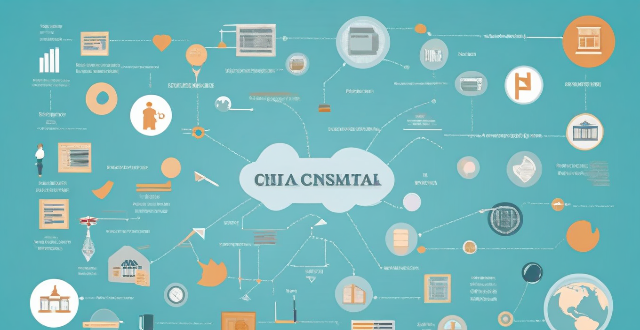
What is the role of international organizations in financial regulation ?
International organizations are crucial in financial regulation, promoting stability, cooperation, and coordination among countries. They set global standards, enhance coordination, provide policy advice, facilitate information exchange, and monitor market developments. The Basel Committee on Banking Supervision, International Organization of Securities Commissions, and International Association of Insurance Supervisors develop regulatory standards for banks, securities regulators, and insurance, respectively. The Financial Stability Board coordinates international financial regulation, while the Bank for International Settlements facilitates cooperation among central banks. The World Bank and IMF offer technical assistance and support for financial sector development and reform. The Committee on Payment and Settlement Systems promotes payment system stability, and the Joint Forum of Tax Administrations addresses tax evasion. The Global Financial Stability Report and Early Warning Exercises monitor market developments and emerging risks. Overall, these organizations help ensure financial stability, reduce systemic risks, and foster a more transparent and resilient global financial system.

How has the COVID-19 pandemic affected the financial markets ?
The COVID-19 pandemic caused significant disruptions in financial markets, including increased volatility, sector-specific impacts, and central bank interventions. Stock markets experienced sharp declines initially, with travel and retail sectors hit hard, while healthcare and technology sectors generally fared well. Central banks cut interest rates and injected liquidity to stabilize markets. Bond markets saw increased activity, and oil prices experienced dramatic swings. Investor behavior shifted towards defensive investing, and economic indicators showed negative trends. The long-term implications of these changes are still unfolding but are likely to shape the financial landscape for years to come.

Where can I enjoy haute cuisine in Hong Kong without breaking the bank ?
Hong Kong is a food lover's paradise, offering a wide range of culinary delights at various price points. Here are some budget-friendly options for enjoying haute cuisine in the city: 1. **Tim Ho Wan** - The World's Cheapest Michelin-starred Restaurant offers dim sum dishes like Baked Buns with BBQ Pork for HK$20-50 per dish. 2. **Yung Kee Restaurant** - Affordable Roast Goose is renowned for its crispy and juicy roast goose, with meals costing HK$100-200. 3. **Tai Ping Koon** - Budget-Friendly Seafood Restaurant serves fresh seafood dishes like steamed fish and shrimp with garlic for HK$50-100 per dish. 4. **Lan Fong Yuen** - No-frills Tea House with Reasonable Prices offers traditional Cantonese tea and snacks since 1956, with prices ranging from HK$20-40 per person. 5. **Kau Kee Restaurant** - Affordable Noodles and Congee is known for its beef brisket noodles and congee, with meals costing HK$30-50. 6. **Lin Heung Kuttay** - Cheap and Cheerful Desserts specializes in traditional Chinese desserts like mango pomelo sago soup and durian pudding, with prices ranging from HK$10-30 per dessert. These options prove that you don't have to spend a fortune to enjoy delicious food in Hong Kong.

How can we involve marginalized communities in climate decision-making processes ?
Involving marginalized communities in climate decision-making is crucial for equitable solutions. Identify and engage these communities, build trust, provide info & resources, incorporate local knowledge, ensure participation, address power imbalances, and monitor progress.

How can small businesses implement automation without breaking the bank ?
In summary, small businesses can effectively integrate automation into their operations by starting small, utilizing affordable tools, simplifying processes beforehand, implementing gradually, outsourcing when needed, and monitoring performance to make necessary adjustments. These strategies help in achieving efficiency gains without excessive costs, allowing for continuous improvement and growth.

How can we balance economic growth with climate decision-making ?
Achieving a balance between economic growth and climate decision-making is crucial for the sustainable development of our planet. This requires a multifaceted approach that involves government policies, business strategies, and individual actions. Here are some ways to achieve this balance: 1. Government Policies: - Implementing Green Taxes: Governments can introduce green taxes on carbon-intensive activities to encourage businesses and individuals to adopt more environmentally friendly practices. - Promoting Renewable Energy: Governments can provide incentives for the use of renewable energy sources such as solar, wind, and hydropower. - Regulating Emissions: Governments can set limits on emissions from industries and enforce strict penalties for non-compliance. 2. Business Strategies: - Sustainable Business Models: Companies can adopt sustainable business models that prioritize environmental sustainability alongside profitability. - Investing in Clean Technology: Businesses can invest in research and development of clean technologies that reduce their environmental impact. - Corporate Social Responsibility (CSR): Companies can incorporate CSR initiatives into their operations, such as supporting local communities affected by climate change or participating in reforestation projects. 3. Individual Actions: - Reducing Carbon Footprint: Individuals can make lifestyle changes to reduce their carbon footprint, such as using public transportation, eating less meat, and purchasing eco-friendly products. - Supporting Green Initiatives: Consumers can support companies and organizations that prioritize environmental sustainability by choosing their products and services over those of less eco-friendly competitors. - Advocating for Policy Changes: Individuals can advocate for policy changes at the local, national, and international levels to promote climate action and protect the environment. In conclusion, balancing economic growth with climate decision-making requires a collaborative effort from governments, businesses, and individuals. By implementing sustainable policies, adopting eco-friendly practices, and making conscious choices as consumers, we can work towards a more sustainable future for our planet.

How does cryptocurrency work ?
Cryptocurrency is a digital or virtual currency that uses cryptography for security, operating independently of a central bank. It allows direct transfers between individuals without intermediaries like banks. Key components include cryptography (public and private keys, encryption, decryption), blockchain technology (decentralization, transparency, immutability, consensus mechanism), mining (Proof of Work, Proof of Stake, mining rewards, network security), and smart contracts (automation, efficiency, security, transparency). These technologies work together to create a secure, decentralized, and transparent digital payment system with fast, low-cost, and borderless transactions while maintaining user privacy and security.

How does scientific literacy among women affect their decision-making abilities in healthcare and environmental issues ?
The level of scientific literacy among women significantly influences their decision-making abilities in healthcare and environmental issues. Scientifically literate women are better equipped to access, understand, and critically evaluate health information, leading to healthier lifestyle choices and more effective communication with healthcare providers. They also show greater awareness of environmental issues and are more likely to adopt sustainable practices, engage in conservation efforts, and advocate for evidence-based policies. Enhancing scientific literacy among women is crucial for empowering them to make well-informed choices that benefit both their own health and the environment.

What are the implications of using artificial intelligence in sports management and decision-making ?
Artificial intelligence (AI) is transforming sports management and decision-making by improving performance analysis, enhancing fan engagement, streamlining operations, advancing analytics for scouting and recruitment, and raising ethical considerations. AI can analyze large data sets to provide insights into team and player performance, create personalized experiences for fans, automate administrative tasks, assist in scouting and recruiting, and address privacy, bias, and job displacement concerns. As AI continues to evolve and become more integrated into sports organizations, stakeholders must carefully consider the opportunities and challenges presented by this technology.
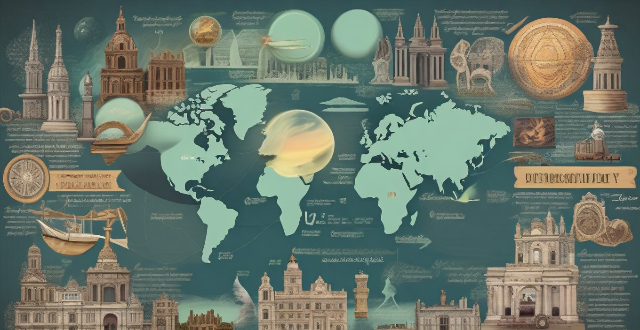
How can I apply what I've learned in history to real-world situations and current events ?
The text discusses the importance of applying historical knowledge to real-world situations and current events. It provides ten ways to apply historical knowledge, including contextualizing current events, analyzing causation, predicting outcomes, informing decision making, promoting critical thinking, enhancing cultural understanding, improving communication skills, developing empathy, informing policy and advocacy, and inspiring creativity and innovation. The conclusion emphasizes that connecting the dots between past and present can help make more informed decisions and work towards a better future.

What is the role of public participation in shaping climate and environmental law ?
Public participation plays a crucial role in shaping climate and environmental law. It ensures accountability, transparency, legitimacy, and trust in the decision-making process. Public participation also fosters innovation and collaboration in addressing climate and environmental challenges. To be effective, public participation must be accessible, inclusive, relevant, and continuous. By involving the public in the development of climate and environmental laws, decision-makers can create more equitable, responsive, and sustainable policies that benefit both current and future generations.

What are the benefits of critical thinking training ?
Critical thinking training offers numerous benefits, including improved decision-making skills, enhanced problem-solving abilities, increased self-awareness, improved communication skills, and boosted creativity. By learning how to analyze information and evaluate evidence in a clear, rational, and objective manner, individuals can make more informed decisions, find creative solutions to difficult challenges, build stronger relationships, and generate new ideas. Overall, critical thinking training can help individuals succeed in both personal and professional settings and reach their full potential.

What is the influence of sports on leadership skills development among adolescents ?
This article discusses the influence of sports on leadership skills development among adolescents. It highlights the importance of leadership skills and how sports can contribute to their development through communication, problem-solving, decision-making, teamwork, and self-motivation. The article concludes that sports have a significant impact on the development of essential leadership qualities that are important for success in various aspects of life.

How can climate services contribute to sustainable development ?
Climate services contribute to sustainable development by providing essential information for decision-making in various sectors. They help inform policy decisions, support agriculture and food security, enhance natural resource management, promote energy efficiency and renewable energy, improve public health outcomes, and encourage resilience and adaptation. By utilizing the insights gained from climate services, we can work towards a more resilient, equitable, and sustainable future.

How does mental toughness impact athletic performance at a competitive level ?
In summary, this article explores the impact of mental toughness on athletic performance at a competitive level. It highlights the benefits of mental toughness, including enhanced focus and concentration, improved resilience and coping mechanisms, increased confidence and self-belief, and better decision making under pressure. The article also provides practical tips for developing these essential skills through mindfulness techniques, visualization, positive self-talk, scenario training, and continuous self-improvement. Overall, mental toughness is crucial for athletes to perform at their best and achieve success in their chosen sport.